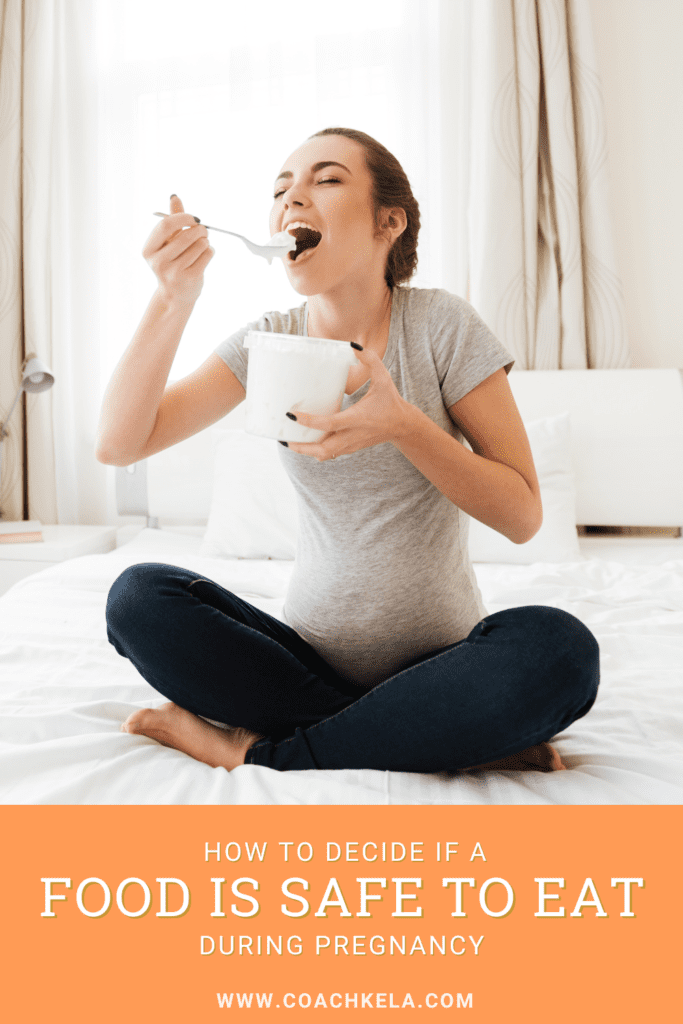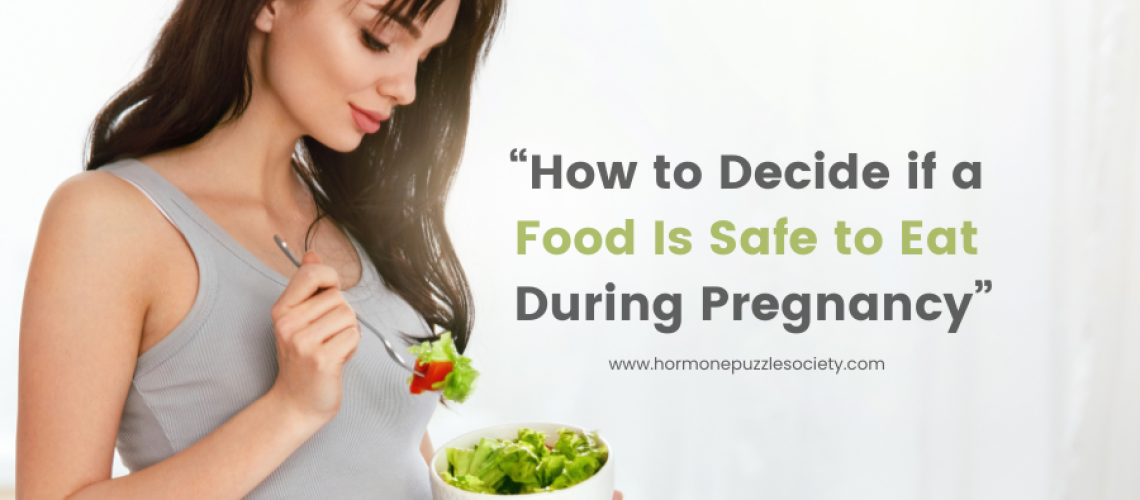Written by Guest Blogger: Katie Salmon, a Prenatal Registered Dietitian and founder of The Pregnancy RD.
Are you feeling confused by what is actually safe to eat while pregnant? Google says this, the doctor says that, and well, your best friends say, “I ate turkey sandwiches my whole pregnancy, and nothing happened to me.”
While the guidance from Google, your doctor, and friends are all well intended, it’s quite frankly overwhelming and leads to more confusion around what is actually safe to eat during pregnancy.
Why is food safety so important during pregnancy?
Food safety is of the utmost importance during pregnancy because it can prevent foodborne illness. Foodborne illness, also known as “food poisoning”, happens when a person consumes a food or beverage that has harmful organisms like bacteria, parasites, or viruses.
During pregnancy your ability to fight off harmful organisms is impaired, which can put your baby at risk. Some common contaminants are listeria, e. coli, and salmonella.
Three common foods that are thought to be unsafe that are actually safe to consume during pregnancy are:
1.Soft cheeses: According to the US Food and Drug

Administration (FDA) there has only been 1 case of listeria infection per 5 million servings of soft cheese consumed by pregnant women. This indicates a very low risk.
2. Eggs with runny yolks: the odds of eggs being contaminated with salmonella are between 1 in 12,000 to 1 in 30,000! Meaning, it is a very rare occurrence. Furthermore, if consuming eggs from organic farms or pasture raised chickens, the risk decreases by 7-fold!
3. Deli meats: In the past, pregnant women have been told to avoid deli meat due to the risk of listeria exposure. The FDA estimates that on average there has been noted to only have 1 case of listeria infection in 83,000 servings of deli meat consumed by pregnant women. This indicates a relatively low risk of contamination.
How do you know if a particular food is safe to eat during pregnancy?
First and foremost, no specific food is inherently safe or unsafe during pregnancy. Rather, it is how a food is processed, prepared, and stored that has a greater association with foodborne illness. With proper handling and storage, many foods that are suggested to be avoided during pregnancy are actually fine to consume.
To reduce the risk of foodborne illness, always wash your produce like fruits and vegetables. Store refrigerated items at the appropriate temperature of >40F and freezer items >0F. Leftovers should be consumed within 3 to 4 days. Be sure to always keep leftovers in an airtight container and refrigerate or freeze immediately. Reheat leftovers until they reach 165F in the microwave or on the stove. If a food has been sitting out in the house for more than 2 hours or outside in the heat for over 90 minutes, it is best to toss that item. This can harbor contaminants.
When it comes to cooking temperatures. The USDA provides a great chart outlining the proper internal temperature to cook animal protein.
Let’s revisit those common foods that are thought to be unsafe to consume during pregnancy. Here is how you can safely consume them:
- Soft cheeses: Buy from a reputable store. Check the food label for the word “pasteurized milk” in the ingredients list. If the cheese is “raw”, you may want to avoid reducing the increased risk of foodborne illness. You can always heat the cheese before consumption. And remember, if the cheese contains mold that is NOT intentional ( i.e. blue cheese or gorgonzola), please avoid it.
- Eggs with runny yolks: Prior to cooking your eggs, wash the egg shell as this is where salmonella can be potentially harbored.
- Deli Meat: Buy from a reputable store. Be sure to ask about how the deli meat is handled – clean slicer, employees wearing gloves, proper refrigeration. Check expiration dates. Use within 3-5 days after opening. You can heat it before eating for at least 10 seconds or until steaming hot.
Knowing what foods that are safe to consume during pregnancy is not always black and white. My hope that this information will empower you to decide what is best for you.
Guest Blogger,
Katie Salmon

Katie is a prenatal Registered Dietitian and absolutely loves providing pregnant people the confidence to fuel their body, nourish baby, while also managing common pregnancy symptoms. Katie take a food-fist non-diet approach in her virtual 1-on-1 practice. Driven by a mission to covert the complicated science into easy to prep meals, Katie is best known for inspiring her clients to create well balanced (and never boring) pregnancy-friendly meals that are easy to maintain with a busy lifestyle.
P.S. Catch Katie’s interview in this week’s episode of The Hormone P.U.Z.Z.L.E Podcast – Misconceptions Around Safe Foods to Eat During Pregnancy. You can also find the episode on this podcast page as well as Spotify, and Stitcher. Don’t forget to subscribe, follow, and write us a review on Apple Podcast (if you LOVE it).

